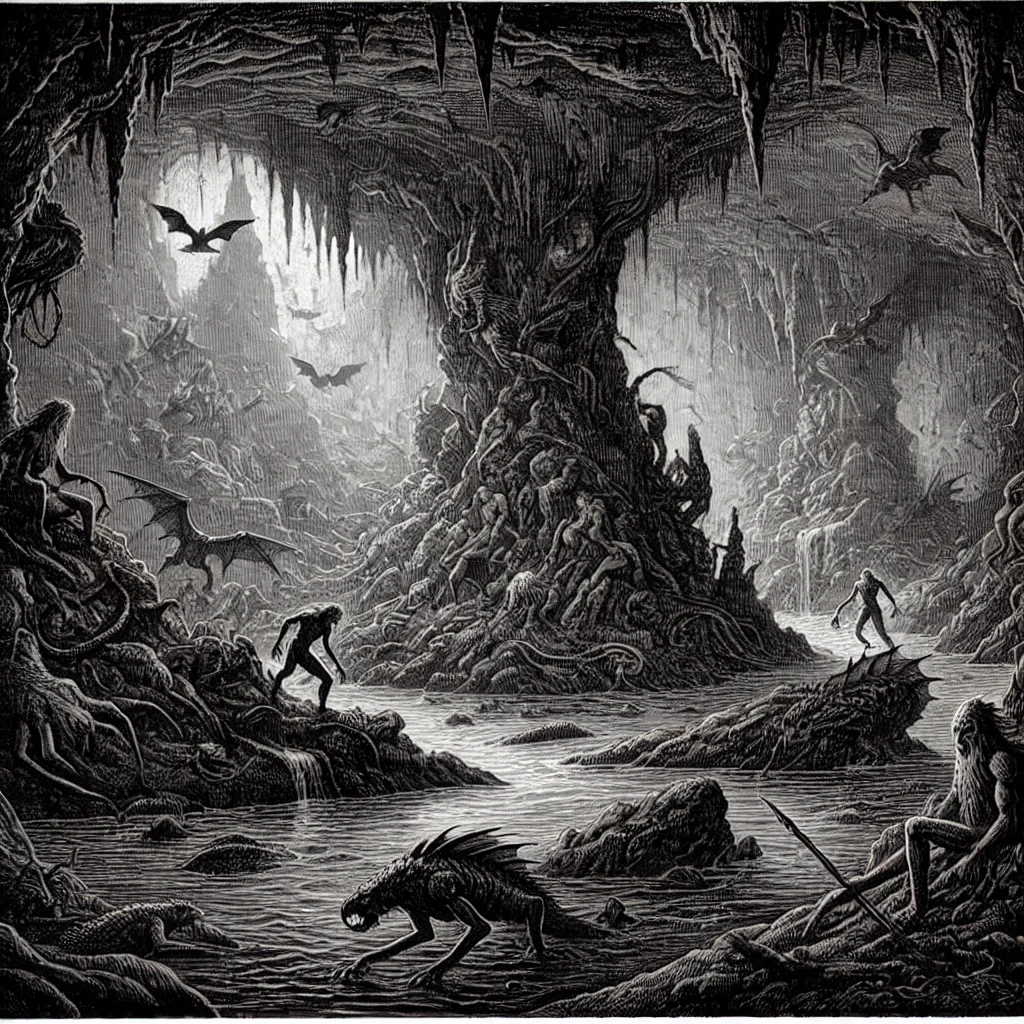
Table of Contents
Ælwihta Eard is a term from the Old English epic poem Beowulf, often translated as the “land of monsters” or “homeland of alien beings.” This term is used to describe the abode of Grendel’s mother, a terrifying and otherworldly place that Beowulf ventures into during his quest to defeat her.
Description in Beowulf
In the poem, Ælwihta Eard is depicted as a fearsome underwater lair:
- Location: It is located at the bottom of a haunted mere, filled with various hostile creatures. Beowulf dives into this mere to confront Grendel’s mother.
- Environment: The lair is dark, grim, and filled with monstrous inhabitants. The mere itself is described as a place of danger and dread, reinforcing the sense of Ælwihta Eard as a truly otherworldly and hostile environment (HumantiesMcMaster) (WVU College of Arts and Sciences).
Significance
Ælwihta Eard contrasts sharply with the human realms in Beowulf:
- Human vs. Monstrous Realms: It represents the antithesis of the human world, a place beyond the boundaries of normal human experience, filled with creatures and dangers that are alien and malevolent (Electronic Beowulf).
- Heroic Challenge: For Beowulf, venturing into Ælwihta Eard signifies a journey into the unknown and a test of his heroic qualities. It is a crucial part of his quest to rid the world of monstrous threats and protect human society.
Connection to Anglo-Saxon Cosmology
In the broader context of Anglo-Saxon cosmology, places like Ælwihta Eard represent the chaotic and dangerous aspects of the world that heroes must confront. This idea ties into the cosmological structure that includes various realms, such as Middangeard (the human world) and Neowolness (the underworld), each with its own characteristics and inhabitants.
References
For further reading on Ælwihta Eard and its role in Beowulf, you can explore the following sources:
These sources provide detailed insights into the text and its interpretations, helping to understand the significance of Ælwihta Eard in the epic.
